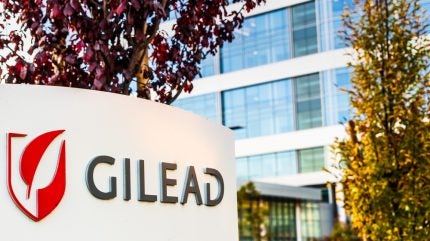
Public figures, scientists, medical professionals, and celebrities have written an open letter to Gilead Sciences, urging them to provide fair access to “gamechanger” human immunodeficiency virus (HIV) drug Sunlenca (lenacapavir) in low- and middle-income countries (LMICs).
In the open letter from the People’s Medicines Alliance, campaigners said the drug “could be a real gamechanger worldwide for the people most excluded from high-quality healthcare” and “help end AIDS as a public health threat by 2030 – but only if all who would benefit from it can access it”.

Discover B2B Marketing That Performs
Combine business intelligence and editorial excellence to reach engaged professionals across 36 leading media platforms.
The letter also suggested that the company licence the drug on the Medicines Patent Pool (MPP) – a Unitaid-backed international organisation – which would allow for cheaper generic versions to be manufactured. Currently, the company’s patent for Sunlenca will not run out until 2038.
The drug, which is administered as two injections a year, has a list price of $42,250 in the US for the first year of treatment, and $39,000 for subsequent years. According to GlobalData’s Pharma Intelligence Center, Sunlenca is forecast to generate $3.1bn in sales in 2030.
GlobalData is the parent company of Pharmaceutical Technology.
The US Food and Drug Administration (FDA) approved Sunlenca plus other antiretrovirals to treat HIV-1 infections in 2022. This was following an approval from the European Commission earlier in the same year.

US Tariffs are shifting - will you react or anticipate?
Don’t let policy changes catch you off guard. Stay proactive with real-time data and expert analysis.
By GlobalDataSunlenca isn’t the only HIV medication in Gilead’s portfolio, it also has fixed dose combination therapy, Biktarvy, an anti-retroviral therapy made up of the novel integrase inhibitor bictegravir, alongside Gilead’s already marketed combo therapy Descovy, which consists of emtricitabine and tenofovir alafenamide, among other drugs.
In September 2017, Gilead signed a licensing agreement with the MPP for Biktarvy, benefiting at least 116 low-income countries.
Gilead has faced extensive court battles over its tenofovir-based HIV drugs since 2001 when it launched tenofovir disoproxil fumarate (TDF). Although effective, TDF users risked skeletal and kidney damage. Around 24,000 TDF users have sued, arguing that Gilead delayed the development of tenofovir alafenamide fumarate (TAF), to maximise TDF profits despite early tests showing TAF had fewer risks.
Gilead has defended itself, arguing that a plaintiff cannot seek compensation for harm caused by a product if that product is not proven defective. The US biopharma has also said that it had no duty to disclose facts relating to TAF when it had not yet been approved.




